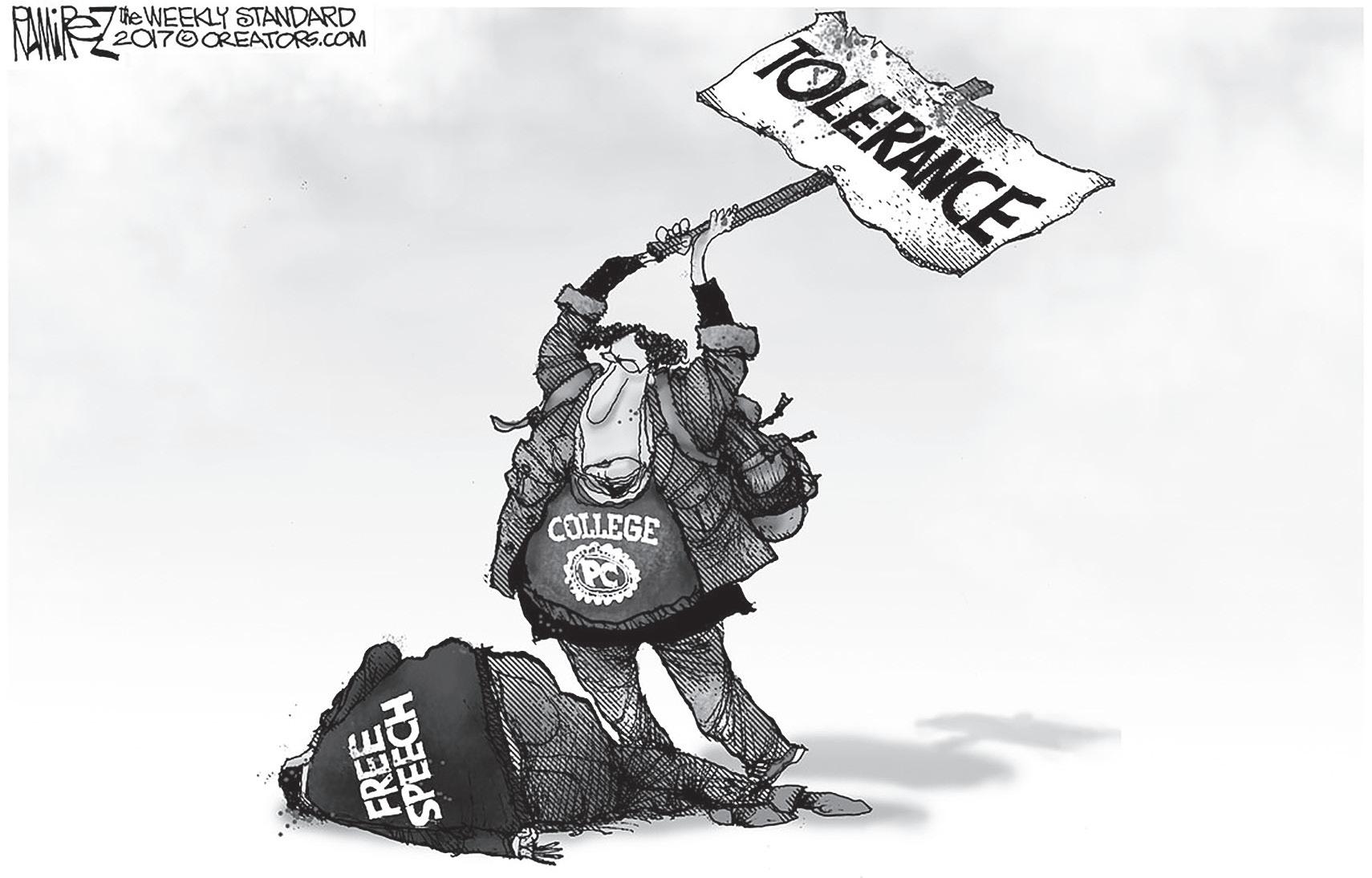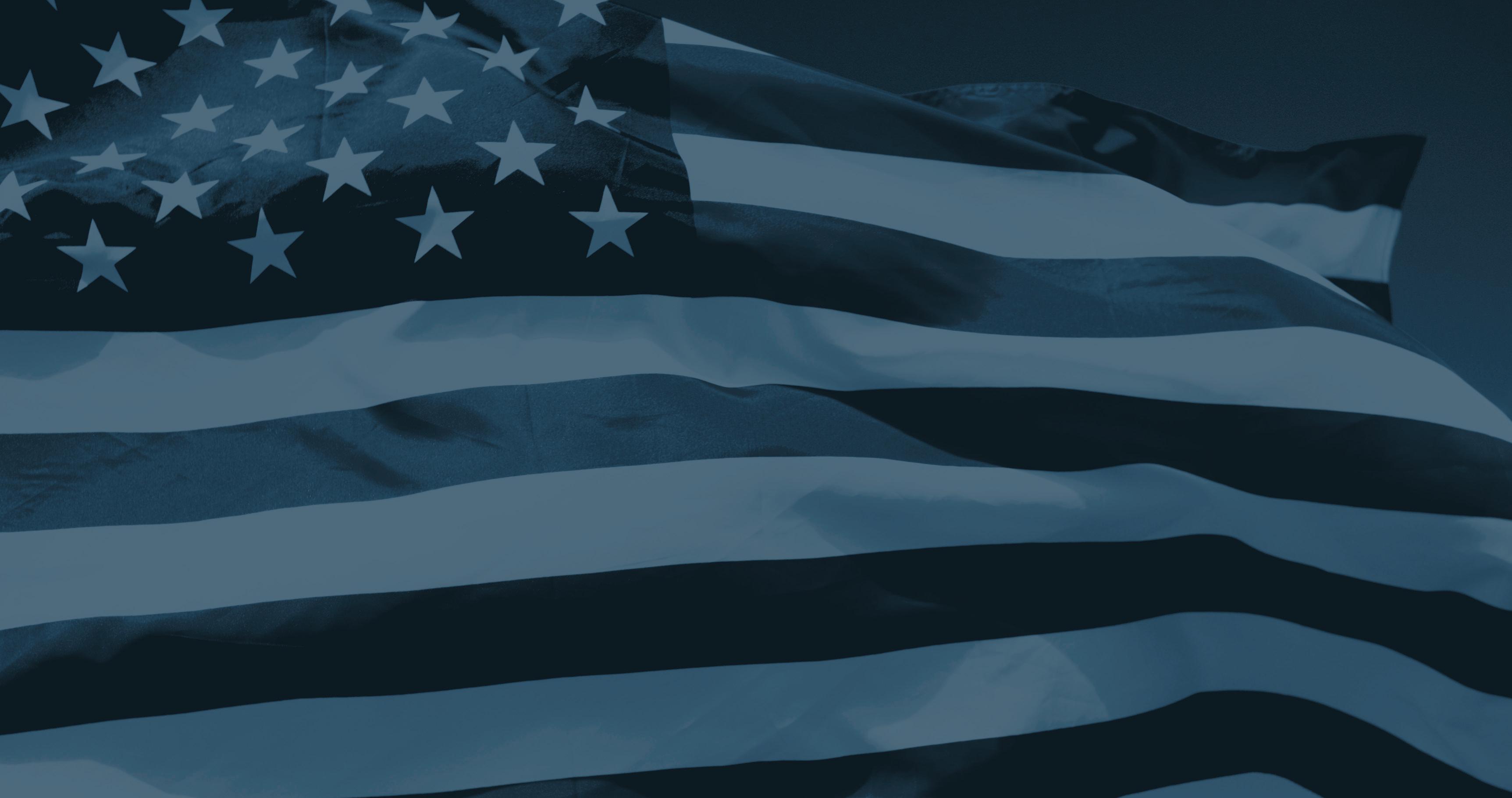
10 minute read
PAGE 12
FREEDOM in ACTION
Emails:
Advertisement
“I called to say thank you. I don’t know if you remember, but you helped me last week. I just got my check and the deduction is gone. If it hadn’t been for your organization, I wouldn’t have been the beneficiary of keeping my money. I’m sure your recommendations and your letter being professionally made streamlined my effort to get the union to stop the deduction.”
– CHARLES
n n n “You all are doing great work!! Keep on snipping the money flow of forced union dues so we can get back to a ‘normal’ America that was built from the vision of our Founding Fathers!”
– SANDRA
n n n “Thank you for following up regarding my election to opt out of union dues. The Freedom Foundation website did assist me in generating a letter to opt out, and it was so easy to access and resulted in success.”

– RICHARD
n n n “Happy to report that … I received a letter and a refund check from the union. Thanks for all your help!”
– ARTURO
“Thank you again and again for helping me with the union harassment that was so scary and coming my way after I shared with staff that the union was taking extra money from their checks to pay for flowers and political influence. Ironically, I am 80 percent Democratic, but I want to allow my money to select the candidate I choose – not them! And feel people with less money should be able to use that money (their money) for daycare, medical bills or anything they want.” – PATRICIA

SCOTUS makes it easier for citizens to sue government
By GLYNIS GILIO Reprinted from the RED STATE March 11, 2021
This week, the United States Supreme Court issued an 8-1 opinion in Uzuegbunam v. Preczewski — a significant win for constitutional liberty. The opinion, authored by Justice Clarence Thomas, stated that nominal damages, or damages amounting to a single dollar, are enough to prove standing for a federal court hear their case.
Uzuegbunam is an important victory for individual rights in the United States, but it is especially beneficial for public interest legal organizations like the Freedom Foundation whose job it is to fight for Americans’ constitutional liberties in court.
The government can’t violate your rights then turn around and say you can’t sue it because you’ve suffered no monetary damages, because the injury stopped or because you no longer work for it or attend its schools.
In many Freedom Foundation cases, for example, unions attempt to “moot” lawsuits against themselves by eventually granting a disgruntled member his or her release, or by paying back dues that were illegally collected.
Thereafter, the worker has to prove how they still have a redressable claim. Many courts accept this logic to avoid hearing claims on the merits of the case.
Uzuegbunam provides the Freedom Foundation, and countless other organizations, with an avenue to make the government admit it violated someone’s constitutional rights, even if it is through payment of one dollar.
The case itself concerned Chike Uzuegbunam, a college student at Georgia Gwinnet College, who wanted to share his Christian faith with his fellow students only to be stopped by campus police who said he needed a permit to distribute religious materials outside of two dedicated campus zones.
Even after he obtained the permit, Uzuegbunam was once more silenced by campus police because it led to complaints. Again, Uzuegbunam complied.
But he sued the college, claiming its policies violated his First Amendment rights.
The lower court told Uzuegbunam the violation of his constitutional rights didn’t matter because he couldn’t prove he suffered any monetary damages. The college also quickly decided to change its speech-zone policy rather than defend it against Uzuegbunam’s claims.
As a result of policy change, in combination with the lack of monetary damages, lower courts ruled that Uzuegbunam had no case.
The college tried to wash its hands of the issue and get away with violating his constitutional liberties.
But Thomas, writing for the majority, concluded that nominal damages are sufficient for a court to remedy the violation of Uzuegbunam’s constitutional rights. Relying in large part on history, Thomas cited the fact that nominal damages historically could provide prospective relief .
He noted that, although common law courts initially required proof of actual monetary damages, later courts reasoned that every legal injury necessarily causes damage in one form or another, and this approach was adopted both before and after the ratification of the Constitution.
According to the ruling, it’s undisputed that Uzuegbunam experienced a violation of his constitutional rights — irrespective of whether it caused him economic harm — when Georgia Gwinnet enforced its speech policies against him by silencing his voice and his beliefs.
Chief Justice Roberts was the only dissenter. He resisted the court’s championing of Uzuegbunam’s First Amendment right because he feared that the reasoning would reduce the role of judges to mere “advice columnists.”
He sees the decision as a risk of a major expansion of the judicial role. In his mind, courts should only review the legality of policies and actions after someone has proven they actually have a real injury that needs remedying.
Roberts’ rationale focuses more on the impact on judges than the question of preserving constitutional liberties when they’re violated by the government.
Uzuegbunam is a game-changer for public interest legal organizations all across the country. Successfully demonstrating standing is one of the primary challenges these organizations face, which results in countless constitutional arguments left unheard on the merits.
Constitutional liberties are priceless. When the government violates a person’s rights, it should be held accountable for its actions, no matter how large, small or beyond calculation they may be.
There is no price tag on the First Amendment.
The court’s opinion in Uzuegbunam v. Preczewski reaffirms what the Freedom Foundation and so many other organizations already know: People suffer in more than just economic ways when the government violates their rights, and now they will no longer be able to get away with it.

IN PRINT
Feb. 17, 2021

Divided Washington Supreme Court blocks Freedom Foundation political contribution case against unions
“A narrowly divided Washington Supreme Court on Thursday threw out several legal challenges filed by a conservative think tank against state employee unions alleging violations of campaign finance laws. The 5-4 opinion ruled that challenges brought by the Freedom Foundation against Teamsters Local 117, Service Employees International Union 775 and Gov. Jay Inslee were not timely filed under Washington state law.”
FREEDOM in the NEWS
ON ONLINE

Feb. 23, 2021 ‘Excise tax’ measures proposed in Washington
“The Freedom Foundation, a nonprofit think tank with offices in Washington, stated lawmakers have called it an ‘excise tax’ knowing that targeted, unequal income/property taxes are subject to legal challenge.‘While the Freedom Foundation again stands ready to challenge any misguided and unconstitutional new tax in court if passed by the Legislature, it’s always preferable that bad ideas simply never become law,” wrote Maxford Nelsen, director of labor policy.”
ON AIR
March 15, 2021

Supporters, critics continue to battle over proposed capital gains tax in Washington
“Opponents included Freedom Foundation Director of Labor Policy Maxford Nelsen, who said. ‘We believe this capital gains tax is unnecessary, punitive, and unconstitutional.’ Nelsen argued the tax on investment earnings should be considered a tax on income, something that is unconstitutional in the state.”
IN PRINT
Feb. 24, 2021

Klamath Falls businesses inspected, fined by OSHA
“Casey’s Restaurant has already been fined $8,900 in December for serving dine-in food and drinks while it was prohibited by the governor’s executive order. Casey’s owners have pledged to appeal fines, with the backing of conservative nonprofit the Freedom Foundation, and to continue serving customers at normal capacity despite state restrictions.”
The fuse is lit.
In February, the Freedom Foundation asked the U.S. Supreme Court to hear arguments in Belgau v. Inslee. If the court agrees to take the case and votes just as it did three years ago in Janus v. AFSCME, public-sector unions could conceivably have no members and no money overnight.

And your support will have made it all possible.

ACTION TIMELINE
SPOTLIGHTING SOME OF THE FREEDOM FOUNDATION’S NOTEWORTHY ACCOMPLISHMENTS OF THE PAST MONTH
March 1
The Freedom Foundation submits an amicus brief in support of a lawsuit filed by Americans for Prosperity and the Thomas Moore Law Center challenging efforts by the Califiornia state attorney general to force all charitable organizations operating in the state to turn over the names and addresses of their top financial contributors. In its brief, the Freedom Foundation argues that the threat facing donors whose identities are leaked to the public is more than just speculation. The campaign of harassment and intimidation faced by supporters and staff of the Freedom Foundation in recent years bears powerful evidence to this reality.
March 1 An article authored by Freedom Foundation legal fellow Glynis Gilio is published on the RedState. com website. Headlined “Liberty Has No Price Tag: U.S. Supreme Court Recognizes the Value of Free Speech Rights,” the article chronicles the case of Uzuegbunam v. Preczewski, in which a student at Georgia Gwinnett College was repeatedly denied his First Amendment right to distribute religious materials on campus — even after obtaining a permit. The student subsequently sued, but his case was dismissed because he had suffered no financial damage. The Supreme Court, however, lowered the damage threshold, allowing the suit to proceed. The outcome is significant to the Freedom Foundation because its lawsuits against unions have often been dismissed on the same basis.
By the Numbers
March was another a good month for public employee opt outs. Over a period of two days, March 9 and 10, 229 government employees on the west coast gained their freedom by leaving their respective unions.
March 12
An op-ed authored by Freedom
Foundation Labor Policy Director Maxford Nelsen is published by the Wall Street Journal. Headlined, “Unions and Democrats attack the right to work,” the piece spotlights the so-called PRO Act, passed earlier in the week by the U.S. House of Representatives, as little more than a payback to the unions that pumped millions into Joe Biden’s presidential campaign.
March 16
The Freedom Foundation files suit on behalf of Glenn Laird, a longtime California teacher who broke ranks with his union when it included defunding law enforcement among its demands in return for returning to the classroom during the COVID outbreak. The union denied his request to leave, saying he signed a membership agreement that included language limiting opt-outs to a two-week window every year. Laird, however, has a copy of the contract with that wording blacked out with a felt pen.
March 18
The Freedom Foundation appeals Boardman v. Inslee to the U.S. Supreme Court. The case involves Initiative 1501, a union-financed ballot measure passed in 2016 by Washington state voters, that purported to toughen the state’s laws against identity thieves who prey on seniors and vulnerable individuals. In fact, the initiative’s real purpose was to exempt the contact information for union-represented homecare providers from the public disclosure laws that apply to every other government employee, preventing fellow caregivers and organizations like the Freedom Foundation from informing them of their rights to leave the union without penalty.
March 19
The Freedom Foundation announces that a total of nine amicus curiae (“friend of the court”) briefs — authored by elected officials, public policy organizations and the attorneys general for 13 U.S. states have been submitted in suport of its appeal to the U.S. Supreme Court in Belgau v. Inslee. The case argues that virtually every public-sector union contract in the nation should be voided because the workers weren’t advised of their rights to decline union participation.
March 19
Glenn Laird, the California teacher represented by the Freedom Foundation in his suit against his union for denying his opt-out (see above), appears on the Fox News’ show Fox and Friends.
You can do something today to impact the next generation.

Keep fighting for freedom by creating a legacy gift to the Freedom Foundation.
Have questions? We can help. Call us at (360)956-3482. Ask for Mark.




